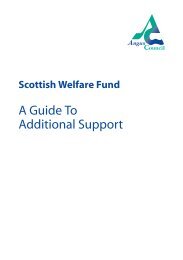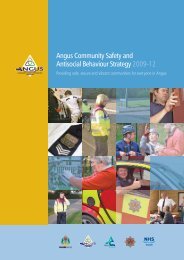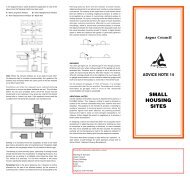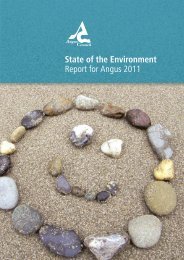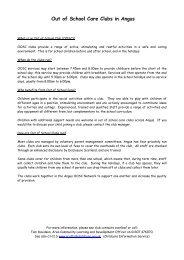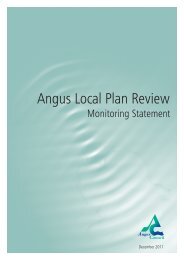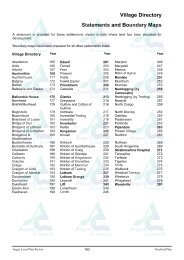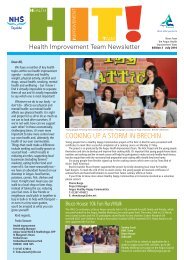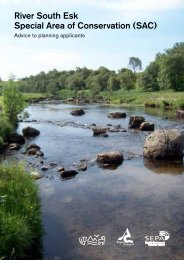Winter 2011 (1.9 MB PDF) - Angus Council
Winter 2011 (1.9 MB PDF) - Angus Council
Winter 2011 (1.9 MB PDF) - Angus Council
Create successful ePaper yourself
Turn your PDF publications into a flip-book with our unique Google optimized e-Paper software.
Housing news<br />
Energy Efficiency<br />
Many homes in<br />
Scotland are not very<br />
energy efficient, especially<br />
homes in rural<br />
areas.<br />
Your home can<br />
become more energy<br />
efficient if you follow<br />
these steps:<br />
• don’t leave appliances<br />
on standby - turn<br />
them off. Do not leave<br />
lap tops and mobile<br />
phones on charge unnecessarily;<br />
• switch off lights<br />
when rooms are not in use;<br />
• close your curtains at dusk to save heat;<br />
• turn the thermostat down by one degree and cut<br />
10% off your fuel bills, saving around £50 per year.<br />
If you have a programmer, set your heating and hot<br />
water to come on only when required rather than all<br />
the time;<br />
• consider showering instead of taking a bath;<br />
• when boiling a kettle, only use the water you need,<br />
and use it immediately after boiling;<br />
• when using the washing machine, ensure it’s full: one<br />
full load uses less energy than two half loads;<br />
• hang washing outside rather than using a tumble<br />
dryer;<br />
• defrost fridges and freezers regularly;<br />
• remember to close the output dial (sometimes called<br />
the boost button) on storage heaters before you go<br />
to bed, or if you go out during the day;<br />
• use your central heating rather than plug in electric<br />
heaters: they’re cheaper;<br />
• set your programmer to heat water if you have gas<br />
heating;<br />
• use energy saving light bulbs: they last up to ten<br />
times longer;<br />
• report leaking taps: a dripping hot water tap wastes<br />
energy and in one week wastes enough hot water to<br />
fill half a bath.<br />
Cause and cure<br />
Condensation—mistakenly referred<br />
to as ‘damp’ —is particularly common<br />
in the winter months as buildings get<br />
colder and windows are opened less<br />
frequently. Condensation occurs when<br />
moisture caught in warm air comes into<br />
contact with cold surfaces. This causes<br />
the moisture to form water droplets.<br />
If left, condensation can cause mould to<br />
form and grow. While unpleasant, mould<br />
can be removed with a mould removing<br />
product or a very dilute solution of bleach<br />
and water.<br />
Simple changes to lifestyles —such<br />
as opening windows—will reduce the<br />
common sources of condensation such as<br />
steam from cooking, bathing or showering,<br />
unvented tumble dryers and drying clothes<br />
indoors without opening windows.<br />
If you are taking steps to minimise mould and condensation<br />
but it still persists, you should report it to<br />
us to investigate through the ACCESSline on 08452<br />
777 778<br />
10




